When is the Best Time to Get Pregnant? - Day & Good Time

Quick Summary
- The best time to get pregnant is around the time of ovulation.
- Ovulation occurs about 14 days before your period starts.
- You can track your ovulation by monitoring your cervical mucus and basal body temperature.
Table of Contents
- About Menstrual Cycle
- Ideal Time for Having Sex to Get Pregnant
- Ways to Predict Ovulation
- Factors That Can Affect Fertility
- Tips to Improve the Chances to Get Pregnant
- Relationship of Irregular Periods and Pregnancy
- Effect of Pills on Fertility
- When to Consult a Doctor?
- Takeaway
- Frequently Asked Questions
- References
Have you been planning for a child for a while and wish to know when is the best time to get pregnant? Well, you might be unaware that scheduling sexual activity with your spouse around your most fertile days increases your chances of conception.
However, determining the best time for pregnancy, which is the exact ovulation day, is not always simple! You must learn to recognise ovulation symptoms and monitor changes in your cervical mucus and core body temperature to find out about your chances of getting pregnant. Some women use ovulation predictor kits to determine when they are ovulating and determine their reproductive window.About Menstrual Cycle
The menstrual cycle is a normal physiological process that occurs in the female reproductive system. It involves the release of an egg from the ovary and the shedding of the lining of the uterus if the egg is not fertilized.
The menstrual cycle is controlled by hormones, primarily estrogen and progesterone, which regulate the growth and shedding of the uterine lining and the maturation and release of the egg.
The menstrual cycle is divided into four phases: the menstrual phase, the follicular phase, the ovulatory phase, and the luteal phase.
- Menstrual Phase: The menstrual phase marks the beginning of the menstrual cycle and is characterized by the shedding of the uterine lining, resulting in bleeding that lasts 3 to 7 days.
- Follicular Phase: The follicular phase begins after the menstrual phase and is characterized by the growth and development of a follicle in the ovary, which contains an immature egg. Estrogen levels rise during this phase, which stimulates the growth and thickening of the uterine lining.
- Ovulatory Phase: The ovulatory phase occurs when the mature egg is released from the ovary and travels down the fallopian tube towards the uterus. This typically occurs around day 14 of a 28-day cycle, but can vary in length depending on the individual.
- Luteal Phase: The luteal phase begins after ovulation and is characterized by the formation of a corpus luteum in the ovary, which produces progesterone to prepare the uterine lining for implantation of a fertilized egg. If the egg is not fertilized, the corpus luteum breaks down and the levels of estrogen and progesterone decrease, causing the shedding of the uterine lining and the start of a new menstrual cycle.
The length of the menstrual cycle can vary from woman to woman, with an average cycle length of 28 days. However, cycles can range from 21 to 35 days or longer. Regular menstrual cycles occur when the length of the cycle is consistent from month to month. Irregular menstrual cycles can be caused by various factors, including hormonal imbalances, stress, weight changes, and certain medical conditions.
A typical woman's menstrual cycle is summarised in the following table, along with the likelihood of being fertile at each stage. This table can be used to know when is the best time to get pregnant:
|
Day of cycle |
Stage |
Fertility |
| 1 to 7 | Menstruation | Least fertile stage |
| 8 to 9 | Post-menstruation | Possible to conceive |
| 10 to 14 | Days around ovulation | Most fertile |
| 15 to 16 | Post-ovulation | Possible to conceive |
| 17 to 28 | Thickening of the uterine lining | Less fertile, unlikely to conceive |


Ideal Time for Having Sex to Get Pregnant
According to gynaecologists, the ideal time to get pregnant is when a woman is ovulating. This period lasts for 6 days every month. During this period, the female egg remains functional for 12 to 24 hours after its release. In this particular 6-day window, the sperm has to cease its movement and meet an egg.
So, once ovulation starts, engaging in unprotected intercourse will increase the chances of conceiving and might lead to pregnancy. However, do remember that pinpointing a particular day, or time is not possible, so trying frequently will only increase the chances.
But you will have to find out exactly when you'll be ovulating if you wish to be more accurate about which time is best for pregnancy. The following determining factors play an important role to help in finding out when you'll be ovulating in any particular cycle:
- The duration of a female's menstrual cycle.
- How regular are your periods.
It is likely that you may be ovulating in the middle of your menstruation period if you usually have a fairly normal 28-day cycle. If your menstrual cycle is short, you can expect to be ovulating a few days after your menstruation stops.
The duration of the menstrual cycle for several women varies from month to month, and as a result, the reproductive window may start shifting if your menstrual cycle is irregular. It is therefore recommended to have intercourse every 2 to 3 days throughout your cycle. Instead of concentrating all your efforts on the days you anticipate ovulation, it is less stressful and more productive.
Ways to Predict Ovulation
Finding out when you ovulate might help you know the best time to get pregnant. In order to do so, you need to be aware of the symptoms of ovulating. Typically, three weeks before your next period, you will start ovulating.
Now, to find out if you're ovulating, try keeping an eye out for the following:
- Cervical Mucus Monitoring: Checking your cervical mucus daily is one of the simplest ways to determine your most fertile days and the good time for pregnancy. The mucus would appear watery or egg-white-like discharge.
- Basal Body Temperature (BBT) Charting: You can also measure your basal body temperature throughout your cycle to determine when you are ovulating. When you ovulate, your basal body temperature slightly increases.
- Ovulation Predictor Kits: You may also use ovulation calculators to learn more about your reproductive window. All you'll need to know is when your last period started and how long a typical cycle is for you.
- Check for soreness on one side of your stomach.
- Also, if you are feeling more sexually aroused can indicate that you may be ovulating.
Factors That Can Affect Fertility
Fertility is a complex process that depends on a variety of factors. While some couples are able to conceive easily, others may experience difficulties due to a range of factors that can affect fertility. These factors can include
- Age: Fertility declines with age, particularly for women over the age of 35.
- Weight: Being underweight or overweight can affect hormone levels and disrupt the menstrual cycle, leading to fertility problems.
- Hormonal imbalances: Imbalances in hormones such as estrogen, progesterone, and testosterone can interfere with ovulation and conception.
- Polycystic Ovary Syndrome (PCOS): PCOS is a condition that affects hormone levels and can cause irregular periods and infertility.
- Endometriosis: Endometriosis is a condition in which the tissue that normally lines the inside of the uterus grows outside of it, causing scarring and blockages that can interfere with conception.
- Medications: Certain medications, such as chemotherapy drugs and some antidepressants, can affect fertility.
- Smoking, alcohol, and drug use: These substances can damage reproductive organs and disrupt hormone levels, leading to fertility problems.
- Stress: Chronic stress can interfere with hormone levels and disrupt ovulation and the menstrual cycle.
- Environmental factors: Exposure to certain chemicals and toxins, such as pesticides and lead, can affect fertility.
- Genetic factors: Certain genetic conditions, such as Turner syndrome and Klinefelter syndrome, can affect fertility.
Tips to Improve the Chances to Get Pregnant
Everyone's family planning experiences are unique, so you are not alone if getting pregnant takes longer than anticipated. Do your best, and do not put too much pressure on yourself or your spouse. Contact your healthcare practitioner for assistance if you're struggling with the stress of trying for a baby and wish to know the perfect time for pregnancy. Following the tips mentioned below may improve your chances of getting pregnant:
- Throughout your cycle, having sex every day or every other day is advisable. Although it is not necessary to schedule intercourse with your reproductive window, doing so may improve your chances of getting pregnant.
- Have a balanced diet and try to exercise on a daily basis. Severe weight fluctuations have been linked to illnesses that can affect fertility.
- Strive to limit your alcohol consumption to the suggested level. It may damage both your ability to conceive and the health of your unborn child.
- Attempt to quit smoking. Your reproductive health, hormone balance and fertility can all be impacted by smoking.
- It is vital to opt for a more sperm-friendly lube because the sperm quality can be harmed otherwise.
Relationship of Irregular Periods and Pregnancy
It's not always true that women with irregular periods are less fertile than those with regular cycles. However, you may want to visit your doctor if:
- Your periods fluctuate unexpectedly.
- There is a significant difference of at least 20 days between your menstrual cycles.
- Your periods are irregular, and you're having trouble getting pregnant.
- Your periods are less than 21 days apart or more than 35 days long, lasting longer than 7 days.
Period irregularities can occasionally be brought on by thyroid problems or polycystic ovarian syndrome (PCOS). It is preferable to seek medical treatment sooner than later because these illnesses may hinder your ability to conceive.
Determining whether you're fertile if your periods are more irregular can be more challenging. As a result, examine the fertile mucus regularly to know the best time to get pregnant. When you detect two or more days of moist, slick mucous, try to engage in sexual activity. Or you could simply engage in routine intercourse throughout your cycle.
Effect of Pills on Fertility
The purpose of birth control pills is to stop unplanned pregnancies. The pill prevents pregnancy by delivering artificial hormones that suppress ovulation and uterine lining thickening. Hence, even if the ovaries release an egg, a fertilised egg can't attach to the uterine wall. Moreover, the pill thickens cervical mucus, which prevents sperm from reaching an egg.Some women use ovulation kits to determine which time is the best for pregnancy.
Most of these ovulation tests look out for the luteinizing hormone (LH), the true catalyst for egg release. Although using them to schedule intercourse won't necessarily boost your chances of getting pregnant naturally, you might use them to determine when you are most fertile during your cycle.
When to Consult a Doctor?
It is recommended that couples should try to conceive for at least one year before seeking medical assistance, as it can take time for conception to occur. However, there are some cases where it may be advisable to consult a healthcare provider sooner. These include:
- Age: Women over the age of 35 may want to seek medical advice after six months of trying to conceive, as fertility declines with age.
- Irregular periods: Women with irregular periods may have difficulty predicting ovulation, making it harder to conceive. A healthcare provider can help identify any underlying issues and provide guidance on tracking ovulation.
- History of reproductive disorders: Women with a history of pelvic inflammatory disease, endometriosis, polycystic ovary syndrome (PCOS), or other reproductive disorders may want to seek medical advice before trying to conceive.
- Male fertility issues: If a man has a history of low sperm count or other fertility issues, it may be advisable to seek medical advice before trying to conceive.
- Previous miscarriages: Couples who have experienced multiple miscarriages may want to seek medical advice to identify any underlying issues that may be affecting fertility.
- Lifestyle factors: Couples who engage in lifestyle factors that may affect fertility, such as smoking or excessive alcohol consumption, may want to seek medical advice before trying to conceive.
Takeaway
To sum up, hopefully, now you have an idea of ‘when is the best time to get pregnant’. So, if you are planning to become a parent then plan accordingly. Stay assured that you are in sync with your ovulation cycle. Furthermore, to identify potential causes of difficulties in conceiving, the doctor will ask you a lot of questions about your past medical history. Last, but not least, keep in mind that even 85% of healthy women take almost a year to become pregnant, irrespective of where one is in the fertility journey.
So, if you're worried about getting pregnant or wish to know when you're ovulating, you may reach out to a doctor at HexaHealth about when it's ideal to conceive. The experts here will guide you through the process and provide all the necessary assistance that is required.
Frequently Asked Questions
When is the best time to get pregnant?
The menstrual cycle differs from person to person, typically lasting from 25 to 30 days. A person is most fertile during ovulation, which takes place between days 10 and 14. By counting backwards from the first day of their cycle, a person can determine the precise ovulation days each month.
Which time is best for the pregnancy test?
Most pregnancy test kits can be used on the first day of a missed period. Test at least 21 days after your last unprotected sex if you don't know when your next period is due. Certain high-sensitivity pregnancy tests can be used even before you miss a period.
Which day is best for pregnancy?
It is not possible to point out a particular day that is best for pregnancy. However, if you keep trying during the ovulation period, the chances are higher than usual. The ovulation period starts 12 to 14 days before the next menstrual cycle.
Which time is urine best for a pregnancy test?c
The best time to check urine for a pregnancy test is in the morning, the very first time you urinate. However, some pregnancy tests are sensitive enough to detect hCG (human chorionic gonadotropin) at any time of the day. If possible, wait 3 hours after your previous urination before taking the test.
Can I get pregnant just after my period has finished?
Absolutely, even though it's unlikely, if you engage in sexual activity without taking contraception, you can get pregnant at any point in your menstrual cycle. This includes the time right before or right after your period.
When is the best time to conceive, morning or night?
The best time to conceive is in the morning, right after both of you have a good night of sleep. Now, this might seem a bit strange, but the sperm is at its healthiest at this point.
What time of day is the highest sperm count?
The reproductive biologists of Chronobiology International claim that sperm concentrations are noticeably higher in semen produced in the early morning, before 7.30 am. Moreover, compared to semen produced at other times of the day, the total number of sperm and the proportion of sperm with normal morphology were higher. It was discovered that healthy semen samples taken between 5:00 am and 7:30 am had a statistically increased sperm concentration.
How many days after my period do I ovulate?
Ovulation normally occurs about 14 days before the beginning of the subsequent menstrual period (in a typical 28-day menstrual cycle). However, the duration of each person's cycle and the interval between ovulation and the beginning of the following menstrual period may change. If you don't have a 28-day monthly cycle, keeping a menstrual calendar might help you determine how long your cycle is and when you're most likely to ovulate.
How do I know if I'm ovulating?
Your ovulation is about to start if you notice the cervix is secreting egg-white mucus (which could be noticed as vaginal discharge). Also, it is common to experience severe abdominal discomfort in the middle of your cycle as a sign that ovulation may occur shortly. Painful and swollen breasts can also result from increased oestrogen levels leading to ovulation.
How do I know if I am fertile enough to get pregnant?
You can get pregnant only if you ovulate, requiring predictable, regular cycles. Although it can vary from 5 to 7 days, a healthy cycle typically lasts 25 to 30 days. Using an app to track your periods and note your symptoms will make it simple to keep track of this.
How do you know if your body is ready to get pregnant?
A promising indicator of fertility is the capacity to identify ovulation in addition to cycle length and predictability. The ovulation period can be more accurately predicted with an ovulation predictor kit (OPK). The luteinising hormone (LH), which spikes 1 to 2 days prior to ovulation, is what OPKs measure in your pee. Another technique to determine ovulation is to track your basal body temperature first thing in the morning. This is because your body temperature slightly increases around ovulation.
How can I increase my chances of getting pregnant?
It's crucial to take folic acid daily, eat a nutritious diet, and avoid alcohol if you're trying to get pregnant. This will support the healthy growth of your child. Moreover, make an effort to maintain a healthy weight and quit smoking. It can help if your partner adopts these same behaviours.
What to avoid when trying to get pregnant?
Smoking can make it more difficult to get pregnant and causes ovarian follicles to age more quickly, resulting in earlier menopause and a higher chance of infertility. So refrain from smoking at all costs.
What should I avoid after ovulation to get pregnant?
If you consume a lot of coffee, you should reduce your intake and avoid sugary, caffeinated "energy" drinks when ovulating. Caffeine overuse may marginally increase the chance of miscarriage. Limiting your daily caffeine intake to no more than 200 milligrams is advised.
Last Updated on: 14 March 2023
Reviewer

Dr. Arti Sharma
MBBS, DNB Obstetrics and Gynaecology, Diploma In Cosmetic Gynaecology
9 Years Experience
Dr Arti Sharma is a well-known Obstetrician and Cosmetic Gynaecologist currently associated with Aesthetica Veda in Bengaluru. She has 9 years of experience in Obstetrics and Cosmetic Gynaecology and worked as an expert Obstetrician...View More
Author

She is an accomplished new-age professional who has interviewed prominent personalities such as Bhaichung Bhutia, G. Sathiyan, Shashi Tharoor, etc. A content writer interested in health communication, graphic desi...View More
Expert Doctors (10)
NABH Accredited Hospitals (5)
Latest Health Articles






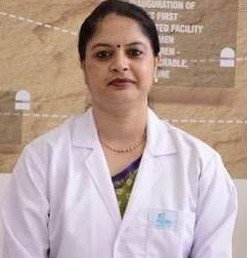
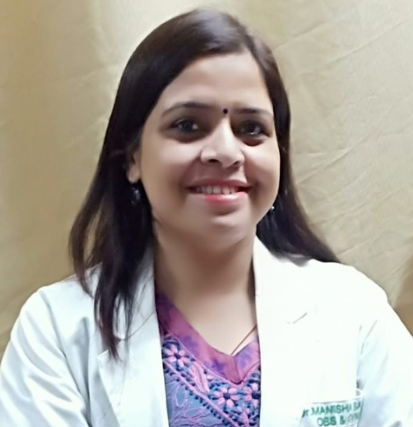
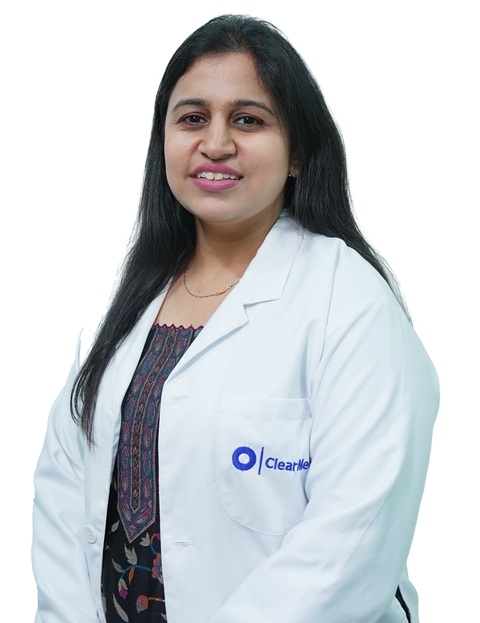


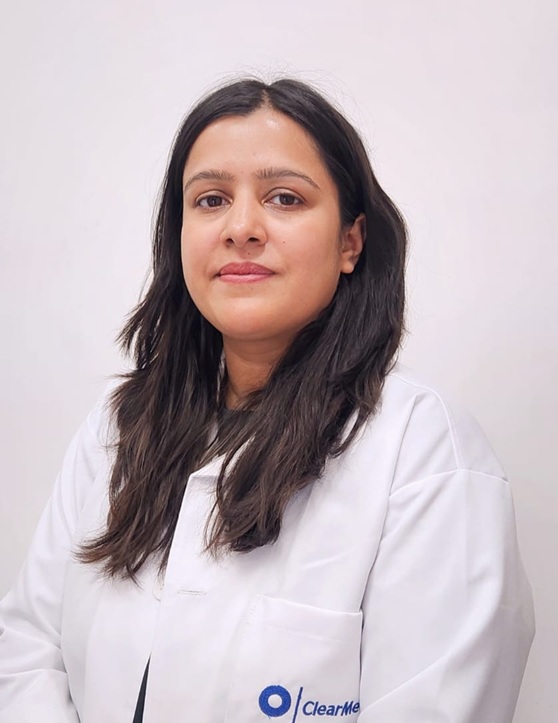












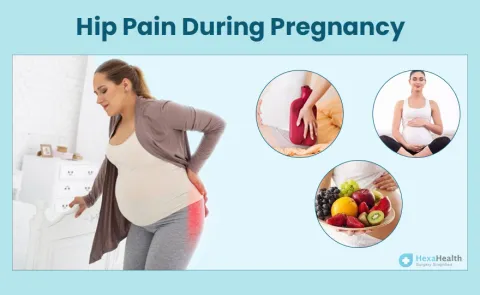


 Open In App
Open In App